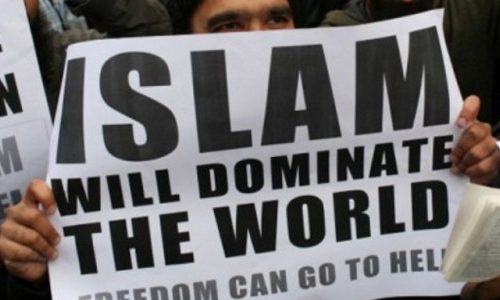This is a cross-post from Just Journalism.
Today Egyptian daily Al Masry Al Youmreports that the Muslim Brotherhood has announced plans to form a coalition in parliament ‘in order to combat the secular political forces in the country.’ ‘Muslim leaders: We want an Islamic state’, explains:
‘A number of religious leaders representing Muslim movements have announce [sic] that the recent cooperation between various religious trends points to a common desire for a religious state that applies God’s laws.’
This move contradicts a current tendency in the British media to emphasise distance between the two Islamic movements. Muslim Brotherhood Member Sobhi Saleh is quoted, saying that ‘recent attacks on the Islamic groups brought us together’. Muslim Brotherhood lawyer Montasser al-Zayat said:
‘The Islamic movements are uniting, despite their different ideologies, because they feel Islam is threatened’.
On behalf of other Islamic groups, Salafi spokesman Abdel Moneim al-Shahat said that ‘Islamic movements are uniting in order to preserve the Islamic nature of Egypt’, and Osama Hafez, who is a spokesman for Jama’a al-Islamiya, explained:
‘God’s words must rule and Islam must be in the hearts of the citizens’.
Although they now claim to have renounced violence, Jama’a al-Islamiya was responsible for a number of terrorist atrocities in Egypt throughout the 1990s, including the 1997Luxor Massacre, in which 62 people were killed.
This high level of cooperation between the Muslim Brotherhood and Salafist groups in Egypt contradicts recent attempts by the British media to place distance between them, and to depict the Muslim Brotherhood as more moderate. As Just Journalism commentedon Monday, Owen Bennet Jones, writing on BBC News website, described how Salafists:
‘argue that the Muslim Brotherhood has become too focused on politics at the expense of religion’.
Such statements elide the strong ideological affinity between the two groups. Just Journalism has also sought to highlight other cooperation between Salafists and the Muslim Brotherhood, including voting for early elections as a religious obligation to thwart liberal and secular Egyptians, and protesting to have a Christian governor in Qena removed.


